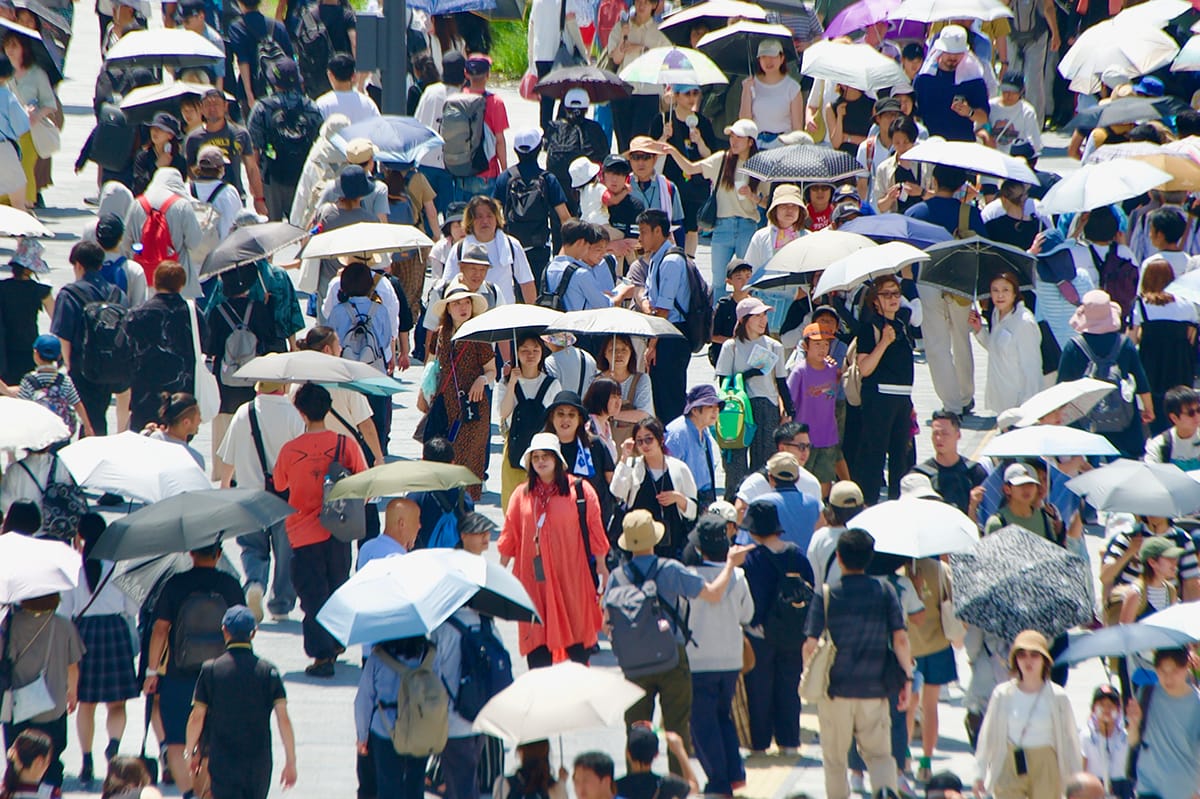By Florenda Corpuz
TOKYO – Japan has launched a new government office to address immigration and other issues involving foreign nationals, more than 340,000 of whom are Filipinos, as political debate over their presence intensified ahead of the recently concluded Upper House election.
Prime Minister Shigeru Ishiba said the move responds to growing public concerns about immigration, land use, and access to social systems. The new Office for Promoting Orderly Coexistence with Foreign Nationals was inaugurated at the Prime Minister’s Office on July 15.
“As Japan faces a declining birthrate and an aging population, and in order to ensure a transition to a growth-oriented economy in the future, it is important for it to incorporate overseas vitality by accepting a certain number of foreign workers and expanding inbound consumption,” Ishiba said.
At the same time, he acknowledged public unease over crimes and incidents involving foreigners, stressing the need to “take strict measures against those who do not follow the rules.”
The new office, which operates under the Cabinet Secretariat, is tasked with coordinating immigration-related policies across the Cabinet Office, the Ministry of Justice, and other relevant government agencies.
“Realizing an orderly coexistence society with foreigners is one of the important policy issues that the government must address,” Chief Cabinet Secretary Yoshimasa Hayashi said during a press conference on the same day.
Filipinos a Vital Part of Japan’s Workforce
For many Filipinos living and working in the Land of the Rising Sun, the creation of the new office offers both hope and caution, a possible step forward in improving systems for foreign residents, but also a reflection of growing political pressure.
“The government is just doing its job. I don’t see anything wrong with it, as long as foreigners aren’t discriminated against because we contribute a lot to their workforce, especially now that Japan’s population is aging,” a 49-year-old Filipina caregiver in Tokyo told Filipino-Japanese Journal.
“It’s good that there’s a new office dealing with foreign residents, but I hope that along with that, the government also addresses the discrimination many foreigners experience here,” a 62-year-old laundry worker in Saitama shared with Filipino-Japanese Journal. “Sometimes, no matter how hard you work, people still look at you differently.”
Filipinos make up the fourth-largest group of foreign nationals in Japan, following Chinese, Vietnamese, and South Koreans. As of the end of 2024, the Filipino population reached 341,518, an increase of more than 19,000 from the previous year, according to the Immigration Services Agency.
They also comprise the third-largest foreign workforce in the country. As of October 2024, 245,565 Filipinos were employed across caregiving, medical services, construction, and manufacturing, accounting for 10.7 percent of Japan’s total foreign workforce of 2.3 million.
Migrants Visible, Yet Unseen, in Daily Life
Cardinal Isao Kikuchi, president of the Catholic Bishops’ Conference of Japan, said the country has long relied on foreign labor without fully integrating migrant communities into society.
“The migrants are not bad people. There are bad people, but there are good ones also, in Japanese society too, and all over the world. But how to integrate these migrants into society, there is no policy for that,” he told Filipino-Japanese Journal.
Kikuchi said the creation of the new office reflects political pressure, as newer parties gain support by tapping into anti-foreigner sentiment. He also warned against misinformation that fuels fear and discrimination.
“The problem is that the majority of people who support parties that say, ‘We don’t need foreigners,’ don’t realize that the country is supported by the existence of migrants. If you go to the convenience stores or restaurants, the staff are from other countries,” he said.
‘Japan First’ Politics and Misinformation
In the recent election, several political parties put forward proposals viewed by some as anti-immigrant.
Sanseito, a minor opposition party running on a “Japan First” platform, called for tighter restrictions on foreign workers in lower-skilled jobs. Nippon Ishin proposed a national cap on the number of foreign residents, while the Democratic Party for the People vowed to regulate land purchases by non-Japanese nationals.
University of Tokyo professor Yu Uchiyama said such proposals are driven by a combination of real incidents and disinformation.
“There is a system for converting foreign driver’s licenses to Japanese licenses. Due to this change, there have been accidents caused by people who have newly converted their licenses,” he said during an online briefing on July 16.
He also pointed to false claims circulating online, including one alleging that foreigners failed to pay 400 billion yen in social insurance contributions.
“This combination of real issues and misinformation leads to increased support for parties like Sanseito,” Uchiyama said.
A Growing Population, an Uncertain Future
Japan’s foreign resident population reached a record 3,768,977 at the end of 2024, according to government figures. Filipino residents continue to play a vital role in Japan’s aging economy while navigating the shifting social and political undercurrents of their adopted home.
For many, the hope is that Japan’s evolving policies will not only secure the country’s future, but also uphold the dignity of the migrants helping to sustain it.
(A bustling crowd of locals and tourists fills the streets of Osaka on June 16, 2025. Photo by Din Eugenio)


